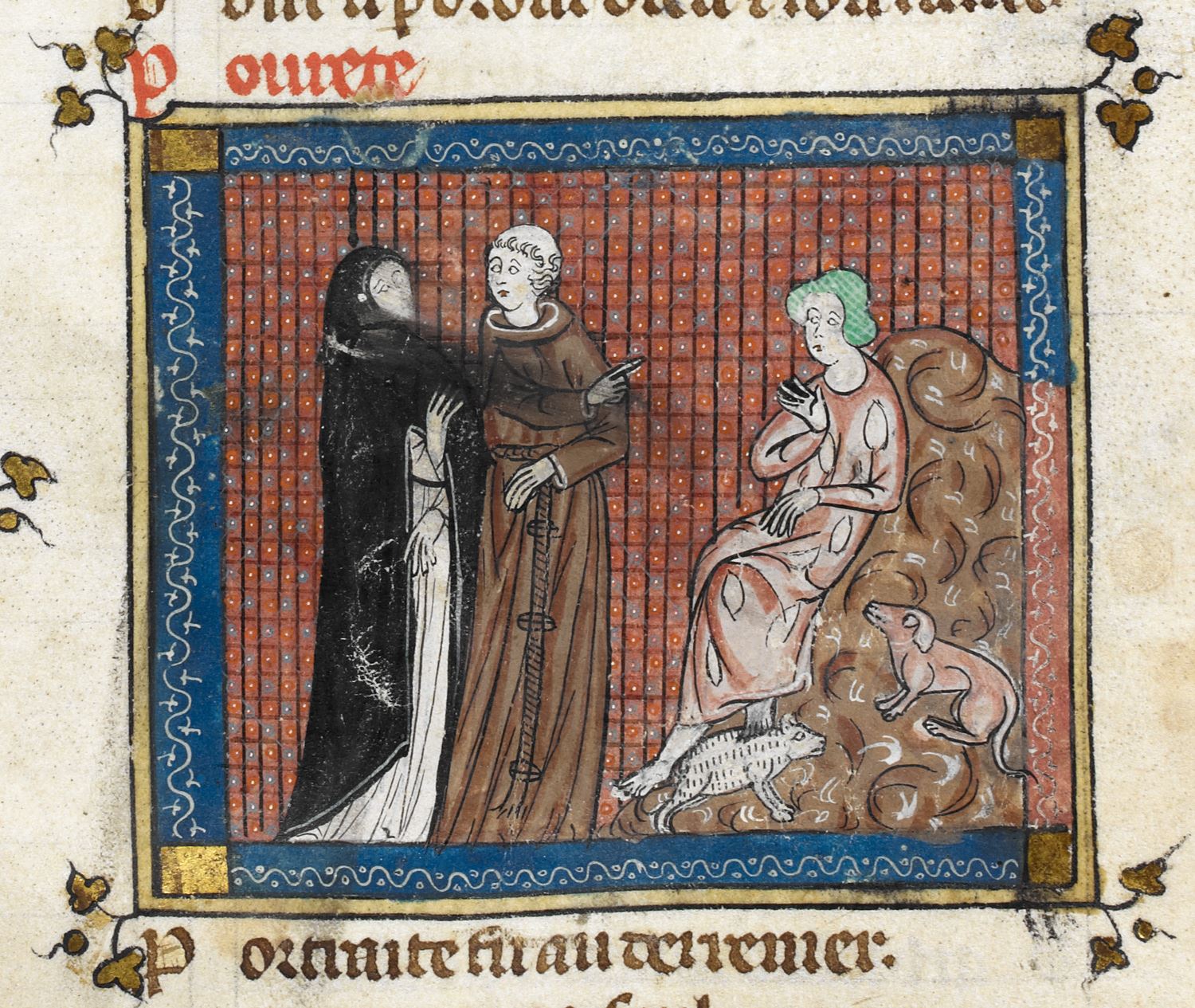Throughout the Middle Ages, the notion of “poverty” spoke to two different experiences: the first, that of the incapacitated, underemployed, and down-and-out, struggling to make ends meet and often living hand-to-mouth; and the second, that of the monastic and mendicant orders, who to varying degrees took up the mantle of poverty by renouncing property and cultivating a spirit of detachment. The phenomena of involuntary and voluntary poverty occupied the same sphere in urban centres, where the indigent and the friars both maintained a visible presence. Despite their co-existence, involuntary and voluntary poverty are usually studied separately and through different lenses. My research seeks to bridge this gap by bringing the two strands of poverty into conversation, probing the ways in which these experiences bore upon each other.

(Povrete from a manuscript of the Roman de la Rose; London, British Library, Royal MS 19 B xiii. fol. 8r detail.jpg;
http://www.bl.uk/catalogues/illuminatedmanuscripts/ILLUMIN.ASP?Size=mid&IllID=57410)
My doctoral dissertation shed light on the nature of the relationship between the friars and the lay indigent in late medieval England, assessing whether the introduction and rise of the friars had a discernable effect on the perception and treatment of the realm’s indigent. Approaching this relationship from various angles, I used the following questions as my framework: How exactly did the involuntary poor factor into the friars’ public discourse on poverty and charity? How was the relationship between both groups presented to and/or problematized by would-be almsgivers? How did the mendicant orders conceive of their own interactions and charitable responsibilities to the poor? And lastly, is there any tangible or quantitative evidence that alms were diverted from the involuntary poor when the friars arrived on the scene?
The questions that arose from my dissertation’s conclusions set my research on its current course. Although technically a medievalist, I feel most at home when I have one foot in the Middle Ages and another in the early modern period; accordingly, my next project will take me into the sixteenth century to examine the framing of poverty in preaching materials in the decades following the dissolution of English monasteries. As a natural progression from my doctoral research, I’m eager to explore effects of the disappearance of public-facing voluntary poverty in England’s religious landscape on discourses of poverty and charity.
Like most scholars, I also have a few labours of love up my sleeve. My work on the poor in John Wyclif’s reformist vision reflects a long-standing enthrallment with Wycliffism and its eponym, cemented during my time at Oxford as a master’s student. My interest in nebulous constructions of poverty – and, of course, my experience navigating the job market as an ECR! – have piqued a fascination with the late medieval and early modern clerical “gig economy”; I’m hoping to dip my toes into an investigation of unbeneficed clerics in the near future.
Currently based in Nova Scotia, I’m always excited to chat and collaborate with other Canadian medievalists and early modernists! Connect with me on twitter @hannahkirbywood.

Hannah Kirby Wood (PhD, University of Toronto)
